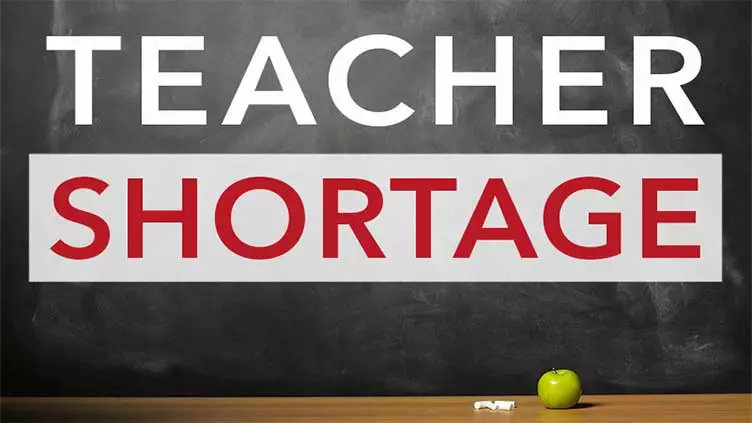WARSAW, Sep 5(ABC): Ewa Jaworska has been a teacher since 2008 and loves working with young people. But the low pay is leaving her demoralized. She even has to buy her own teaching materials sometimes, and is disheartened by the government using schools to promote conservative ideas which she sees as backward.
Like many other Polish teachers she is considering a career change.
“I keep hoping that the situation might still change,” said the 44-year-old, who teaches in a Warsaw high school. “But unfortunately it is changing for the worse, so only time will tell if this year will be my last.”
Problems are mounting in schools in Poland, with a teacher shortage growing worse and many educators and parents fearing that the educational system is being used to indoctrinate young people into the ruling party’s conservative and nationalistic vision.
It’s very much the same in Hungary. Black-clad teachers in Budapest carried black umbrellas to protest stagnant wages and heavy workloads on the first day of school Thursday. Teachers’ union PSZ said young teachers earn a “humiliating” monthly after-tax salary of just 500 euros (dollars) that has prompted many to walk away.
Thousands of people marched in solidarity with teachers on Friday in Budapest, voicing the view that the teachers’ low compensation is linked to the authoritarian direction of Prime Minister Viktor Orban’s government.
“Free country, free education!” they shouted,
Teacher shortages could hardly come at a worse time, with both countries trying to integrate Ukrainian refugees. It’s particularly challenging for Poland, where hundreds of thousands of school-aged Ukrainian refugees now live.
Nearly 200,000 Ukrainian students, most of whom do not speak Polish, already entered Polish schools after the war began on Feb. 24. The education minister has said the overall number of Ukrainian students could triple this coming school year, depending on how the war unfolds.
Andrzej Wyrozembski, the principal of the high school in Warsaw’s Zoliborz district where Jaworska works, has set up two classes for 50 Ukrainians in his school. He said his Ukrainian students who arrived in the spring are quickly learning Polish, a related Slavic language. The real difficulty is finding teachers, particularly for physics, chemistry, computer science, and even for Polish.
Across central Europe, government wages haven’t kept pace with the private sector, leaving teachers, nurses and others with far less purchasing power.
The situation is expected to grow worse as many teachers near retirement and ever fewer young people choose the poorly paid profession, especially when inflation has exploded to 16% in Poland and nearly 14% in Hungary.
According to the Polish teachers’ union, schools in the country are short 20,000 teachers. Hungary, with a much smaller population, has a 16,000-teacher shortage.

